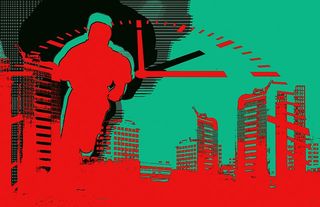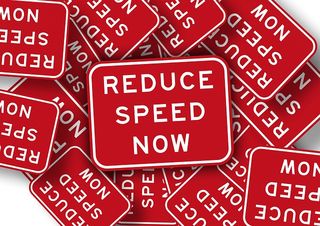Burnout
Life After Burnout
If I'd spotted the signs of my own burnout earlier, I might have avoided it.
Posted February 1, 2017
As I sat down to write this — my first blog after more than a year — I should explain where I’ve been all this time; why so long a break? I thought I stopped blogging (and being active on social media) because I was done with that aspect of my career. I thought I wanted to move on, maybe think about retirement and pursue other interests, then it recently hit me: I needed a break because I was burned out. I just didn’t realize it at the time.
Physician Heal Thyself
Up until late 2015, I was working on a pilot being shot in Colorado and California, still running my practice in Lake Charles, and working on my latest book, The ADHD Advantage: What You Thought Was a Diagnosis May Be Your Greatest Strength, I also would fly back and forth weekly to New York to do news commentary for the major cable networks. I wrote about this period in a Chapter of my book, Better than Normal: How What Makes You Different Can Make You Exceptional, and looking back now, it’s hard for me to remember how I handled it all.
I’m very high-energy, so I handled the travel part pretty well, but there’s no question I felt as if I was running on some extra source of power that kept me going for weeks at a time. I even found myself feeling bored on weekends that weren’t fully booked with back-to-back activities. It just never dawned on me that I might be pushing my own envelope, leaving myself very little room for emergencies, or additional stressors.

When The ADHD Advantage was published in August 2015, I then added a full book tour into the mix. I was managing, but just barely, until I was faced with some major challenges in my family and personal life. Rather than modify my schedule, I just piled on, again, without thinking much about how thin I was already stretched, both physically and mentally.
Then it happened. I didn’t want to do TV anymore, didn’t want to write another book, and I didn’t feel like updating social media because I just didn’t think I had much to share. I’m not the type to talk about my problems, because I believe in the power of hope, and a positive attitude, so it didn’t occur to me to share that I was going through a rough time. Instead, I just assumed that my lack of inspiration and motivation to say anything meant I didn’t have anything to say, and it was time to find something new to pursue.
I quit the traveling back and forth, and took a giant step back to ponder my other options. Of course, after I took that step back, I got some much-needed rest, spent time with my family, and went back to living what most people would consider a “normal” life.
But after several months of that, I was restless. I realized I was missing the interaction. I would read people’s posts on social media, and realize I had something to say. I wanted to help people, wanted to give advice and do many of the same things I thought I was done doing. It became pretty obvious I didn’t want to retire at all!
So I sat down to write this post, and just like I said, it hit me: I wasn’t done, I was burned out.
Had I considered the text of my own book more carefully, I might have spotted the real problem sooner. It’s all in there actually, the Continuum Model, and the description of how energy levels fluctuate, and the key for people like me is to understand their moods, identify highs and lows, and adjust accordingly. But I didn’t. I just decided to stop.
Thing is, I had the luxury of being able to shift gears like I did. Not everyone can do that. If what happened to me happened to most people, they end up in real trouble, in their careers, in their personal lives, or both. Most people can’t just wake up one day without a plan, and stop just because they don’t want to do what they’re doing anymore, no matter how stressful it might be.
With that in mind, I want to use the rest of this post to share with you some of the early warning signs of burn out, so you won’t wait until it gets to the point where you have to step away completely like I did.
Are You Burning Out? Spot the Signs!
First of all, what is burnout exactly? It’s when every day is a bad day, and you feel bored or overwhelmed most of the time. You’re not just tired, you feel like you’re walking through jello. It’s a feeling that can bleed into your personal life and relationships, but generally starts at work, or as a result of your day-to-day routine. Stay-at-home moms can get burned out, so can students.
Burnout can happen as a result of difficult relationships or personal situations too. Caring for an elderly or sick relative, going through a separation or divorce, or just dealing with a toxic person, at work or in your personal life. Anything that pushes you past your limits too consistently, for too long, can put you at risk for burnout.
Whether your brain or your body throws in the towel first depends on whether you’re pushing yourself physically or emotionally, but chances are you’ll see the warning signs of strain in both at the same time.
Unlike stress, where people feel like they would be ok if they could just get things under control, burnout leaves you feeling empty, unmotivated and beyond caring. Folks experiencing burnout often don’t see any hope of positive change in their situations. It’s really one step before clinical depression on the continuum and you can look at it like an early warning sign that your life is out of balance.
“If excessive stress is like drowning in responsibilities, burnout is being all dried up.”
Thankfully burnout isn’t inevitable. You can watch for the signs, and be proactive when you see them. If you start noticing any of the following in your own life, you need to take heed.

Physical Symptoms
Fatigue - not just sleepy, but that sluggish, heavy feeling that doesn’t get better right away, even after a good night’s sleep. You have to drag yourself out of bed, or find yourself falling asleep at your desk, or daydreaming without intending to. Insomnia and other changes in your sleep habits start to appear.
Digestive upset - frequent heartburn, queasiness, decreased appetite.
Headaches - Tension headaches, migraines, perhaps caused by eyestrain, or as a result of sleep deprivation or dehydration (both common when you’re pushing yourself hard).
Lowered Immunity - You feel run down, and are frequently getting sick.
Back pain - Are you feeling like you could always benefit from a massage, or having someone crack your back? It’s common to carry tension in your back when you’re approaching burnout.
Emotional and Behavioral Symptoms
Boredom - the most common emotional symptom of burnout is a generalized boredom. You’re not unhappy, you’re just not happy. Things you used to enjoy don’t seem as fun or challenging. You have an overall “been-there-done-that” feeling, especially about things that used to energize you, and there’s no obvious reason why. The only thing that’s changed, is how long you’ve been doing that thing, or how intensely.
Confusion or forgetfulness - you need to write everything down, and check it twice as many times, but still find that things are still slipping through the cracks. Your mind is wandering when people are talking to you, and you get easily confused if someone talks too fast, or asks you too many questions at once. If you try to learn something new, it’s harder than usual, or you feel like you’re spinning your wheels making no progress.
Impatience and irritability - you find yourself losing your cool more often, or crying more easily. Small things set you off, and you’re not interested in going out or spending time with friends of family. If you are with others, you may find yourself taking out your frustrations or boredom on them.
Frustration or cynicism - you’re not sure you see the point of what you’re doing anymore. You don’t feel motivated or appreciated, and you might even start skipping work, or coming in habitually late. Procrastination becomes a coping mechanism, and then you feel more overwhelmed and frustrated than you were before.
Use of food and alcohol to cope - comfort food or a daily drink (or both) become more like necessities than treats, and you start wondering if you could get through your day without them.
Of course, these could also be symptoms of other things, like a thyroid disorder or clinical depression, so if any of this sounds familiar, you should talk to your doctor as soon as possible. If everything checks out though, you should seriously consider whether you’re burning out like I was.
Think you are burning out? Here’s what you do.
Do some introspection, ask some questions, consider making some improvements. Think about your personal life. Do you have social support, and work life balance? What about your job? Do you feel in control of your career, have clear job expectations, and feel like the work is a “fit” for your skills, or interests? If you answer no to these, you may be honing in on the areas of your life that could be setting you up for burnout.
Most important, trust your gut. If you wake up each day, and feel like something just doesn’t feel right, or people you know well are saying you don’t seem like your “old self,” run through these questions, and make a plan. Even if you discover it’s already too late, you’ll bounce back from burnout a lot quicker if you recognize it for what it is.
As for treatment, that is very individual centric. Sometimes a simple vacation or lifestyle modifications can do the trick, other times you may need a career change or total life overhaul. As I am constantly emphasizing, spend lots of alone time and do some deep thinking. This is crucial and helpful in terms of understanding what’s going on with you.
If you just can’t find the answers, then a therapist may be needed to help you sort things out.




